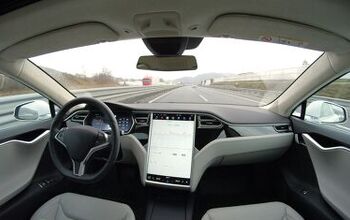Bailout Watch 24: "The Playing Field is Not Balanced"
So writes former Chrysler outside counsel Steven Roby in a rebuttal Op-Ed in the Los Angeles Times today (the original LAT Op-Ed contended that the US government should not bail out American manufacturers). His thesis of “It’s not the Big 3’s fault” is supported with inventive arguments such as “It’s not the Big 3’s fault” and also “It’s not the Big 3’s fault.” More specifically, he writes that GM, Ford, and Chrysler are just ridiculously, unreasonably burderend by high health care costs, that foreign governments directly subsidize manufacturers, and that other countries manipulate currency. We’ve been through this, time and time again. (He also accuses foreign governments of indirectly subsidizing “their” automakers through grants to research universities. Apparently this lawyer has never heard of the Bayh-Dole Act, which allowed for private patents of government funded research at Universities. And I take it he also has never visited Stanford, Berkeley, Duke, UNC-Chapel Hill, Michigan State University, and so on.) But the big problem is that Roby’s article never recognizes any Detroit mistakes: that the Big 3 spent years raking in piles of cash because of SUVs, or benefitted from the chicken tax on pickups, or benefitted from the special EPA status of “light trucks,” or that Chrysler already was bailed out in the past 30 years, or that GM, Chrysler, and Ford haven’t built a truly competitive small car. Roby writes that “The Times should not judge GM, Ford and Chrysler unless it can walk in the shoes of the executives and production workers.” The production workers have gotten the shaft, and nobody is blaming them. But I’d love to walk in the shoes of an executive like Rick Wagoner, whose company can lose billions upon billions of dollars and still go home with a $14 million paycheck. No, the global market for cars is not completely fair. Time to stop complaining and deal with it. Still.
Latest Car Reviews
Read moreLatest Product Reviews
Read moreRecent Comments
- Cprescott The problem with this fable by the FTC is:(1) shipping of all kinds was hindered at ports because of COVID related issues;(2) The President shafted the Saudis by insulting them with a fist bump that torqued them off to no end;(3) Saudis announced unilateral production cuts repeatedly during this President's tenure even as he begged to get them to produce more;(4) We were told that we had record domestic production so that would have lowered prices due to increased supply(5) The President emptied the strategic petroleum reserve to the lowest point since the 1980's due to number 3 and then sold much of that to China.We have repeatedly been told that documents and emails are Russian disinformation so why now are we to believe this?
- Ollicat Another Biden attempt to say, "Look over there!"
- Kjhkjlhkjhkljh kljhjkhjklhkjh Who cares. Price of gas is not the issue. spending an extra 100$ a month over 4 tanks of gas is not the issue.this a political scam to distract really dumb people from the real issue. if rent and house payments were not up by 50% to as high as 150% higher in a ton of locations, then paying an extra 100$ in gas would be annoying but not really an issue. But the real-estate market with hedge fund investors, power-relator groups bought a ton of houses and flipped them into rentals and jacked up the rates uplifting the costs on everything else. and ironically no-one seems to be in any hurry to build more houses to bring those costs down because supply and demand means keeping less houses available to charge as much as you want. It is also not the issue as a secondary issue is child care costs and medical... again 100$ extra per month in gas is *nothing* compared to 800$ a month in ''child care'' and 300$ per visit to the doctor office, 300$ for a procedure less dentist trip..
- Ajla Is there something proprietary or installed on the moon with these that I'm not aware of?
- Tane94 Awaiting the EV3 unveil this month. Kia continues to lead, though I will miss the Soul

































Comments
Join the conversation
Wwaaaahhhh !!
One payer health care system is a failure all around the world. Why would we want to fix the failures of the auto industry with destroying an industry that is the marvel of the world? The auto execs did this to the domestic industry and the workers and our economy will pay for it. The big 3 should pay for the mistakes they have made NOT me and NOT you! Tell them to bail their own ass out!